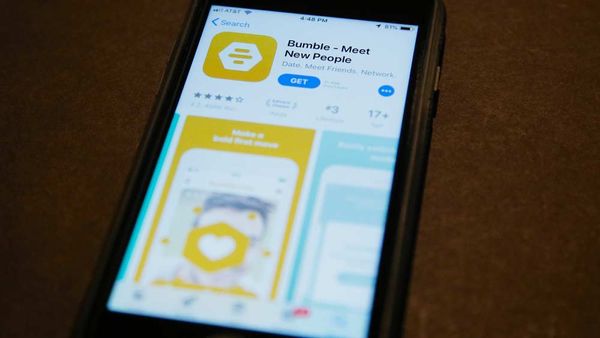November 9, 2012
Why Would Corporations Support Marriage Equality?
Ed Mickens READ TIME: 5 MIN.
In the afterglow of Tuesday's election, the term "historic turning point" for LGBT rights is hardly an overstatement. The passage of equal marriage rights by popular vote in three states, the blockage of an anti-equality constitutional amendment in a fourth (after losses in 30 other states), plus the reelection of the first president to ever publicly ally himself with same-sex marriage equality, demonstrates a dramatic shift in public attitudes.
Equally dramatic, however, and perhaps even more significant, has been the willingness of large businesses and major corporations to lend both their names and dollars toward the cause. In Washington State, in particular, a blue-chip list of high-profile companies -- Starbucks, Nordstrom, Amazon, Microsoft, REI, to name just a few -- took a prominent stand in support of the marriage-equality referendum. Amazon chief Jeff Bezos tossed in $2.5 million of his own toward the campaign. Bill Gates wrote a check for $100,000.
Less than 20 years ago, in 1994, Senator Edward Kennedy's staff had a difficult time trying to convince corporate executives to testify on behalf of the Employment Non-Discrimination Act (ENDA), the first attempt to bar employment discrimination on the basis of sexual orientation at the federal level (a measure that still has not passed.) Their companies had successfully implemented internal policies that did the same; the executives were even on record saying they thought it was a good idea. But testify before Congress? No, thanks.
Why the change? The list of supportive companies comes as no surprise to anyone who is familiar with gay-friendly companies. For more than 20 years, many of these companies have been in the forefront, banning discrimination, creating safe and supportive environments, even pioneering equalized benefits for lesbian and gay families of their employees -- and proving they could work fairly and cost-effectively. (Starbucks was notable here, even offering domestic-partner health benefits to part-timers.) They did it because their corporate cultures valued employees and their diversity, which they believed -- and proved --gave them access to top talent and creativity.
They did it well, but they did it quietly.
So why the new level of prominence on the marriage equality issue? There's a business advantage for them.
"Business seeks uniformity," said Bob Witeck, founder of Washington, D.C.-based Witeck Communications, a public relations and marketing communications firm with a longstanding reputation for advising companies on LGBT issues. He points out that some of the Washington State supporters are among the more than 40 corporations that initially signed on to an amicus brief in the case to overturn the federal Defense of Marriage Act (a list that is growing as DOMA nears the Supreme Court).
"All employers, especially multi-state companies, find it daunting to deal with a byzantine set of tax, pension and administrative levels to deal with their employees' relationships," notes Witeck. That is, legally married in one state, civil-unioned in another, ignored in yet another, banned at the federal level, and so on. "The more payroll, legal, tax and human resources experts have to navigate this forest of distinctions, the more expensive and time-consuming it is -- two burdens all companies try to shed. Uniformity is the simplest path to achieving these savings, and to having employers treat all employees equally. Marriage equality is one of those sublime, and even practical, business solutions."
With more than 7,500 U.S. companies, including close to half of the Fortune 500, now offering spousal-equivalent benefits to their gay and lesbian employees, that could result in some significant savings in business expenses. But what about the other side of the ledger? Is having a reputation as LGBT-friendly, even to the point of supporting as politically divisive an issue like marriage equality, good for business? Or is it a risk?
The National Organization for Marriage targeted Starbucks with a boycott. It went away. In turn, Chick-Fil-A (based in Atlanta) was threatened with kiss-ins and a gay boycott after its CEO dissed same-sex marriage (and was shown to make sizable contributions to anti-gay causes). The fast-food chain had a record day of sales, then it went away.
The lesson would seem to be: beware of the media. Any media. Thus, it should have been no surprise that when companies were contacted about their support for marriage-equality votes, all declined to comment. The best response this reporter received was from Starbucks: a prepared statement from a spokesperson who declined to be identified. It read, in part:
"At Starbucks, we deeply respect the views of our customers and partners (employees) and recognize that there is genuine passion surrounding this topic... Starbucks is proud to be one of several leading Northwest employers in support of Washington State legislation recognizing marriage equality. We made this decision through the lens of humanity and our commitment to embracing diversity.
We have 200,000 people that work for Starbucks around the world and the equity of our brand has been defined by the relationship we have with our partners and the relationship they have with our customers. Put simply, the success we've enjoyed and the resulting shareholder value are directly linked to the pride our partners have for the company they work for and their connection with the communities we serve."
Fair enough. So I went back to Bob Witeck for his insight. He offered this observation: "Forward thinking companies take risks. I think there is modest risk if they are much farther ahead than the public or the marketplace, but there is only very slight risk if they are shaping and mirroring trends. The risk they most avoid is public controversy, which is noisy, distracting and time-consuming. But I can't think of any instance when a company lost any market share or customers because of a gay-friendly policy."
Perhaps the numbers tell the story. Starbucks reported revenue increases of 10 percent to 13 percent for each of the past several quarters. (What boycott?) Nordstrom this week showed an increase in sales of 11.4 percent over the previous year. Amazon announced that sales for the most recent quarter were up 27 percent.
Chick-Fil-A, which is privately held (entirely by the CEO's family), doesn't publish its financials, although it's generally believed that sales are fine. But even things there are changing: a Chick-Fil-A in Nashua, New Hampshire, is reportedly planning to be a sponsor of New Hampshire Pride Fest next August.
Ed Mickens began researching LGBT workplace issues more than two decades ago and published "The 100 Best Companies for Gay Men and Lesbians" in 1994. He is currently traveling the country, interviewing and collecting stories for a new project on the Boomer generation of gay men. He blogs at www.gaymansprogress.com.







